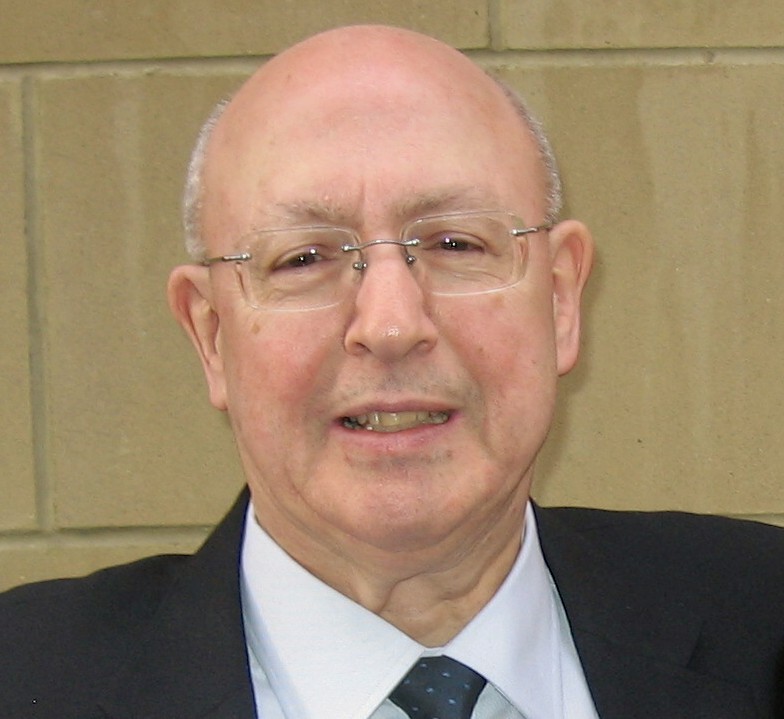 Albert Francis Fiorino is a Canadian educator
and the founder of the Metamode Institute on Public Policy, a Toronto-based think tank. He is a native
of Grimaldi,
Cosenza,
Italy, where
he grew up as a young boy before immigrating to Canada with
his family. He continued his formative and high school
education in Lethbridge,
Alberta where
the Fiorino family settled. He considered entering
the priesthood and after graduation went on to study philosophy
and theology at St. Joseph’s Seminary (now part of the University
of Newman Theological College) in Edmonton,
Alberta, where he was first exposed to the writings of Aristotle,
Thomas Aquinas,
Soren Kierkegaard,
Martin Buber,
Gabriel Marcel,
and Pierre Teilhard
de Chardin, thinkers who were to have a significant
on his own intellectual development.
Albert Francis Fiorino is a Canadian educator
and the founder of the Metamode Institute on Public Policy, a Toronto-based think tank. He is a native
of Grimaldi,
Cosenza,
Italy, where
he grew up as a young boy before immigrating to Canada with
his family. He continued his formative and high school
education in Lethbridge,
Alberta where
the Fiorino family settled. He considered entering
the priesthood and after graduation went on to study philosophy
and theology at St. Joseph’s Seminary (now part of the University
of Newman Theological College) in Edmonton,
Alberta, where he was first exposed to the writings of Aristotle,
Thomas Aquinas,
Soren Kierkegaard,
Martin Buber,
Gabriel Marcel,
and Pierre Teilhard
de Chardin, thinkers who were to have a significant
on his own intellectual development.Having realized that the priesthood was not for him, he decided to continue his philosophical studies at the University of Ottawa, where he obtained graduate degrees in both philosophy and education. During this period he read widely in both of these areas, focusing his efforts during the latter years of his graduate studies on Thomistic existentialism, culminating in the writing of a graduate thesis on the notion of intuition developed by the well known Anglican scholar Dr. Eric Lionel Mascall. It was also during this period that he had the opportunity to study under Dr. William E. Carlo, whose interpretation of Aquinas’ thought was to leave a lasting impression on him, especially his views on the instrumentality of conceptual knowledge and on the primacy of esse in metaphysics. After three years of teaching at the Faculty of Philosophy at the University of Ottawa, Dr. Fiorino went on to the University of Toronto to complete his postgraduate studies in educational theory. The focus of his dissertation was the intellectual sources and roots of Egerton Ryerson’s views on education and of the educational system that he established in Ontario. His research gave him an opportunity to examine the ideas of such thinkers as John Locke, John Wesley, Adam Clarke, William Paley, Sir William Blackstone, Richard Watson, Isaac Watts, individuals whose ideas greatly contributed to the cultural development of nineteenth century Canada. Dr. Fiorino was later to do a postdoctoral fellowship program at the University of Toronto in the area of organization theory in its Faculty of Management Studies (now the Rotman School of Management). This program gave him an opportunity to apply his previous studies in philosophy, education, and theology to the area of organization behaviour and decision making theory. Many of his ideas relating to the development of an institute on public policy were born during this period and were influenced significantly by the writings of social psychologist Chris Argyris and Nobel Laureate in Economics Herbert Simon. Over the years, Dr. Fiorino had the opportunity to teach at several universities including the University of Ottawa, Memorial University and the Ontario Institute for Studies in Education. Perhaps the most influential point in his life came during his stay in Pakistan where he taught at the Notre Dame Institute of Education in Karachi. He was there accompanying his wife Eleanor, who was working on a project sponsored by the Canadian International Development Agency (CIDA) and co-implemented by McMaster University and the Aga Khan University. It was during his stay in Pakistan that he was exposed to Islam, and in particular to Sufism. The key tenets of this tradition, focusing on the commonality of the religious experience in human beings and of the common quest that all men and women share, affirmed his own beliefs about the universality of the human condition. It also underscored for him the need to engage in our times in the kind of thinking that would seek to raise the conduct of public policy to a new level of analysis and deliberation and to give it a new end and motive. Upon his return from Karachi in 1996, he began exploring the possibility of establishing a public policy forum to deal with ways by which to bring about positive change in the human condition. The result was the founding the Metamode Institute on Public Policy, which held its first discussion meeting in the autumn of 1997.
He is the author
of several articles and Commission studies in the field
of education. He is also the principal author and editor of four
Institute publications: Shifting Gears:
Transforming Public Policy (2007), Cut to the Chase: Reinventing Public Education
(2007), Capitalism and Democracy Revisited
(2008), and Voice of One (2008). His
next publication Rational Choice Redirect will be released in
2013. |